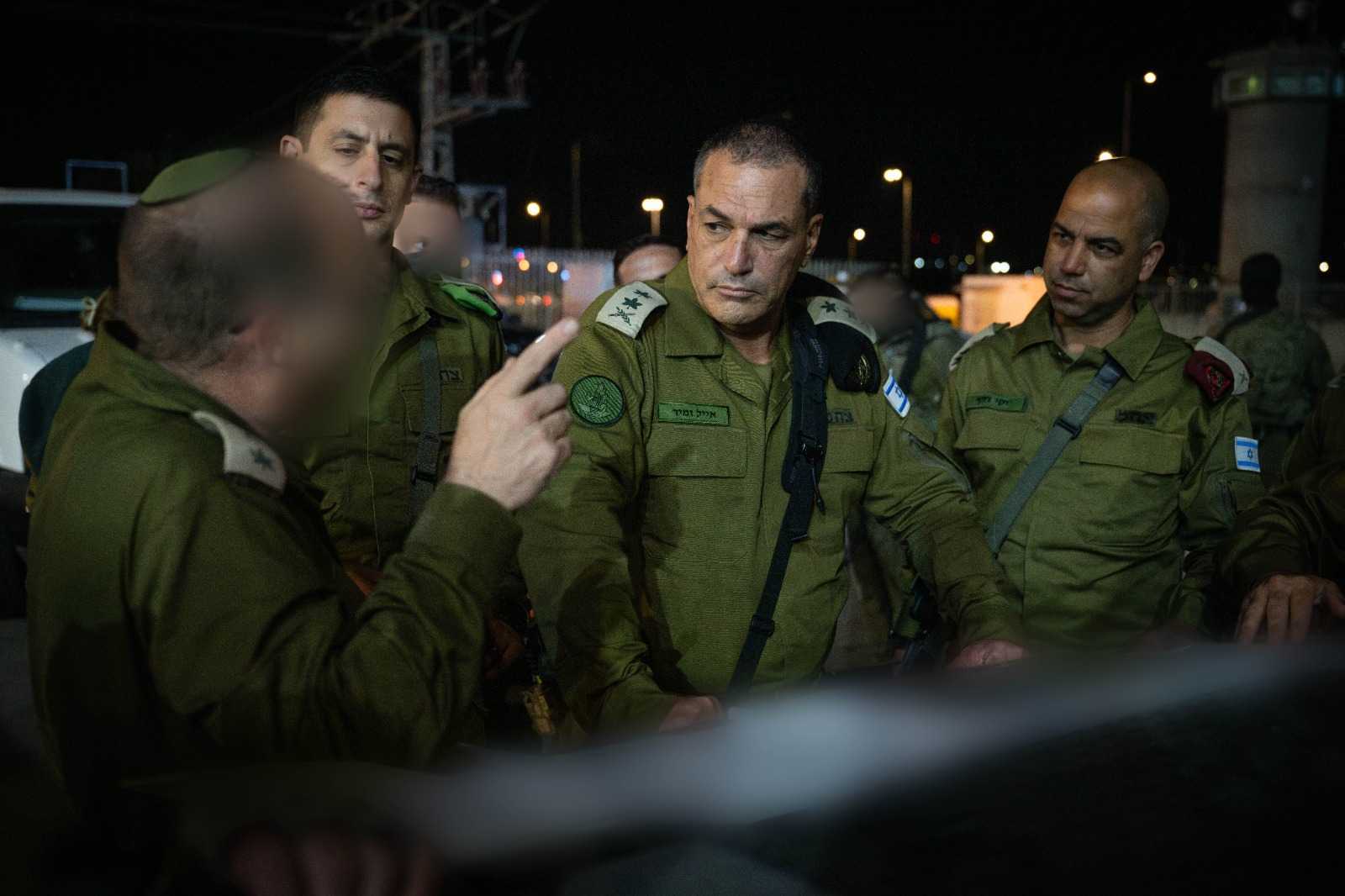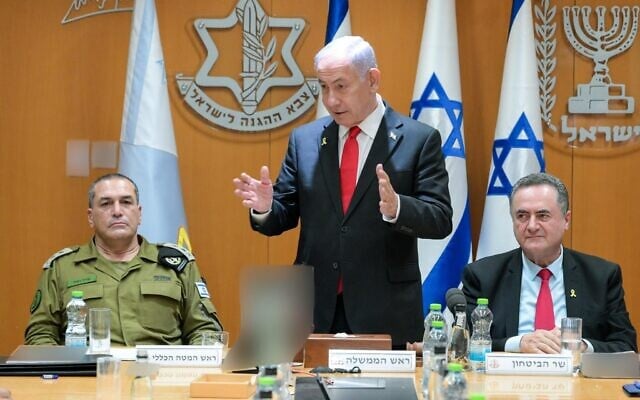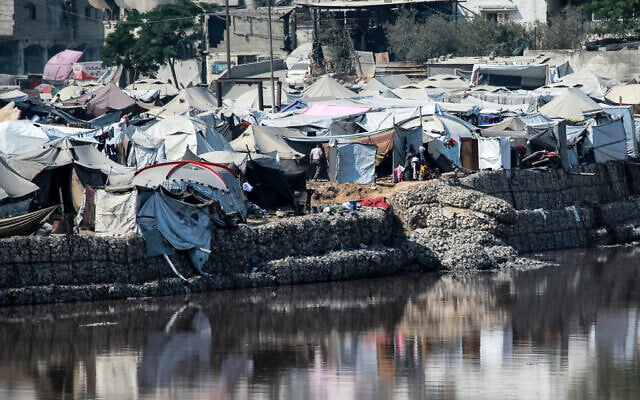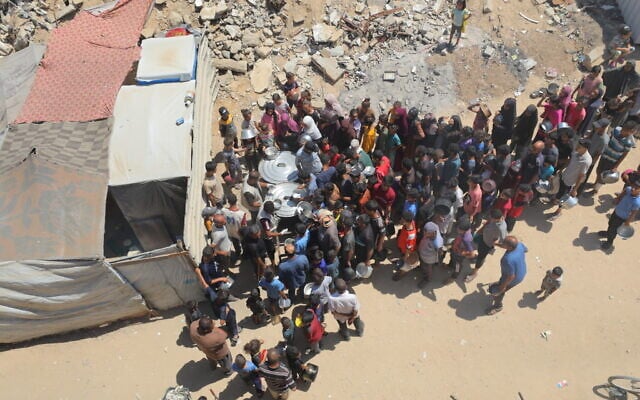



The Israeli military’s Chief of Staff Lt. Gen. Eyal Zamir has serious reservations about the controversial “humanitarian city” plan that Defense Minister Israel Katz has outlined for south Gaza’s Rafah, according to a Monday report in Hebrew media, which cited quotes from a security discussion that took place on Sunday.
According to the report, which was published by Channel 12, Zamir made it clear in the discussion that he strongly opposes the plan, which would see Israel build on the ruins of Rafah in a way that would eventually house all of Gaza’s civilians. The zone would first accommodate some 600,000 Gazans living in the Mawasi area on the coast, and then would contain the enclave’s entire population of more than 2 million.
“It’s an unworkable plan,” he said, according to the outlet.
“It has more holes in it than cheese,” he went on, telling those present at the meeting, which reportedly included Katz, Prime Minster Benjamin Netanyahu, and Finance Minister Bezalel Smotrich, that they “can decide anything, but what is the point?”
“There are countless problems with this plan,” he said, adding that he is “not convinced that it actually corresponds with the goals of the war.”
Zamir reportedly told the meeting that moving forward with the “humanitarian city” idea would make it less likely that Hamas agrees to a deal to free the remaining hostages, and while he said the IDF would carry out the plan if called upon by the political echelon, he strongly recommends against it.

According to the report, Netanyahu pushed back against Zamir, saying that he had asked the IDF to present “a realistic plan,” with one source who was present at the meeting telling the outlet that the premier was “determined” that the plan go ahead, telling the military to “to plan another, much leaner, faster, and cheaper alternative by tomorrow.”
According to a report published Sunday by Channel 12, just before the same meeting, the IDF was planning on telling the present ministers that the controversial plan would “take three to five months from the moment we begin construction until the humanitarian city is operational.”
Channel 12 reported that the military brass is worried that proceeding with the humanitarian city could harm hostage and ceasefire talks, which are currently taking place in Qatar.
After Katz announced his plans for the “humanitarian city” last week, it received major pushback from both inside and outside Israel.

On Monday, Opposition Leader Yair Lapid said it is a “crazy idea — even by this government’s standards.”
“Will its residents be allowed to leave? If not, how will they be prevented from leaving? Will there be a fence? A regular fence? An electric fence? How many soldiers will guard it?” Lapid asked, at the opening of his party’s weekly faction meeting.
According to Katz, residents would be screened before entering and would not be allowed to leave, per the plan. International organizations would provide aid while the IDF secures the site from a distance, and residents would be encouraged to “voluntarily emigrate.”
On Sunday, former prime minister Ehud Olmert said the plan would create a “concentration camp.”
International leaders also criticized the proposal. Britain’s minister for the Middle East and North Africa, Hamish Falconer, said he was “appalled” by the idea.

“Palestinian territory must not be reduced,” Falconer wrote on X. “Civilians must be able to return to their communities.”
The West Bank-based Palestinian Authority also castigated the plan, with its foreign ministry saying: “The humanitarian city has nothing to do with humanity.”
The war between Israel and Hamas broke out on October 7, 2023, when Hamas-led terrorists invaded Israel, killing some 1,200 people, mostly civilians, and kidnapping 251.
The 50 hostages who remain in captivity in Gaza include the bodies of 28 confirmed dead by the IDF, one of whom has been held for over a decade.
The Hamas-run Gaza health ministry said Sunday that more than 58,000 Palestinians had been killed across the Strip since the war’s start. The tolls, which cannot be verified, do not differentiate between civilians and combatants.
